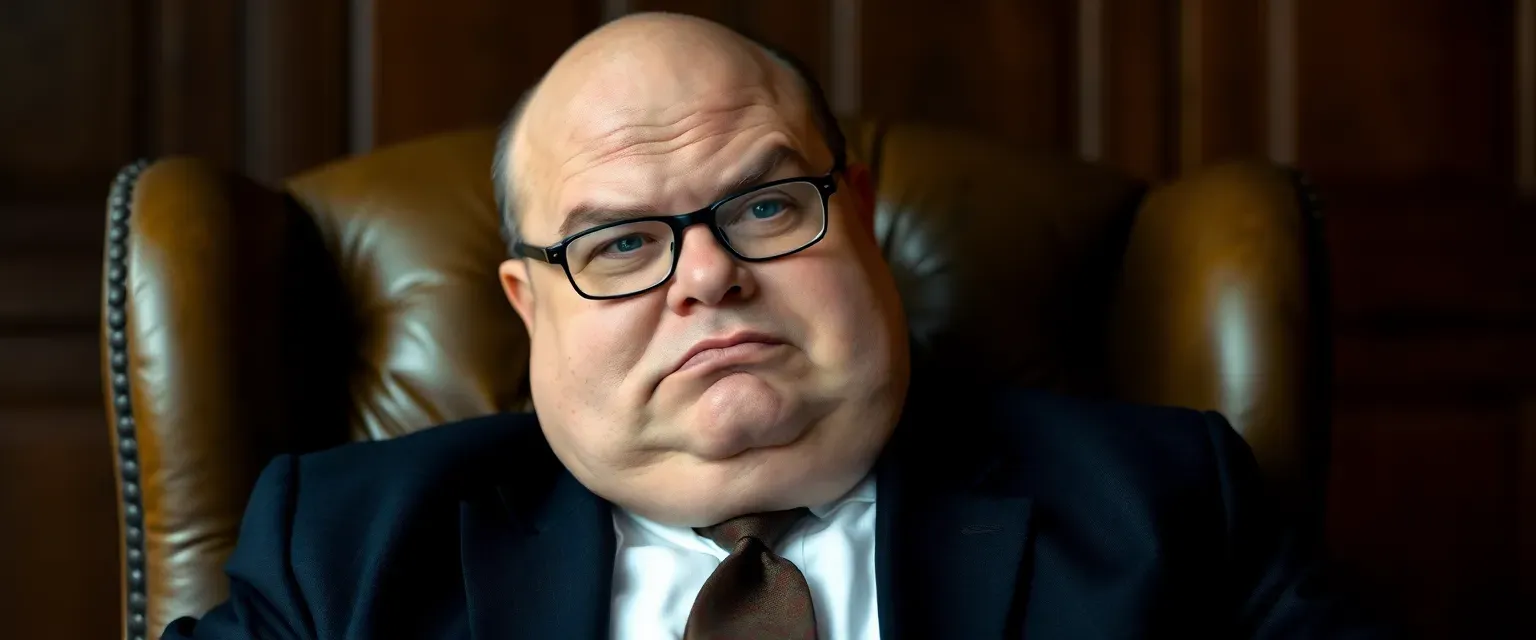Farto, a man in his late forties, sprawls in a worn leather chair that groans under his weight. His balding head glistens with a sheen of sweat, and the remaining strands of hair are slicked back in a futile attempt to maintain some semblance of dignity. His thick glasses perch precariously on his nose, magnifying his unsettlingly intense gaze. Farto's plump lips are often parted slightly, as if perpetually on the verge of uttering some distasteful remark. His attire, a stained and ill-fitting suit, does little to conceal his corpulent figure, emphasizing his lack of concern for social norms or personal hygiene.
Farto's autism manifests in his obsessive interest in human psychology, particularly the darker aspects of human nature. He spends his days in a dimly lit room, surrounded by stacks of books and papers, analyzing and dissecting the minds of others. His unique quirk is his habit of humming classical music while he works, a strange melody that seems to fuel his twisted thoughts.
In his world, a society that values superficial charm and social graces, Farto's abrasive personality and lack of social skills alienate him. He yearns for recognition and respect, but his methods of achieving this—manipulating and exploiting those around him—only deepen his isolation. Farto's intelligence is undeniable; he uses it to craft intricate schemes, believing that his superior intellect entitles him to control others.
His life is a series of calculated moves, each designed to bring him closer to the power he craves. Yet, his plans often unravel due to his inability to understand the emotional responses of those he targets. Farto's journey is one of relentless pursuit, marred by conflicts with those who see through his facade and resist his manipulations. Ultimately, his story ends not in triumph, but in a deeper descent into his own twisted psyche, as he realizes that the control he seeks is an illusion, forever out of his grasp.
